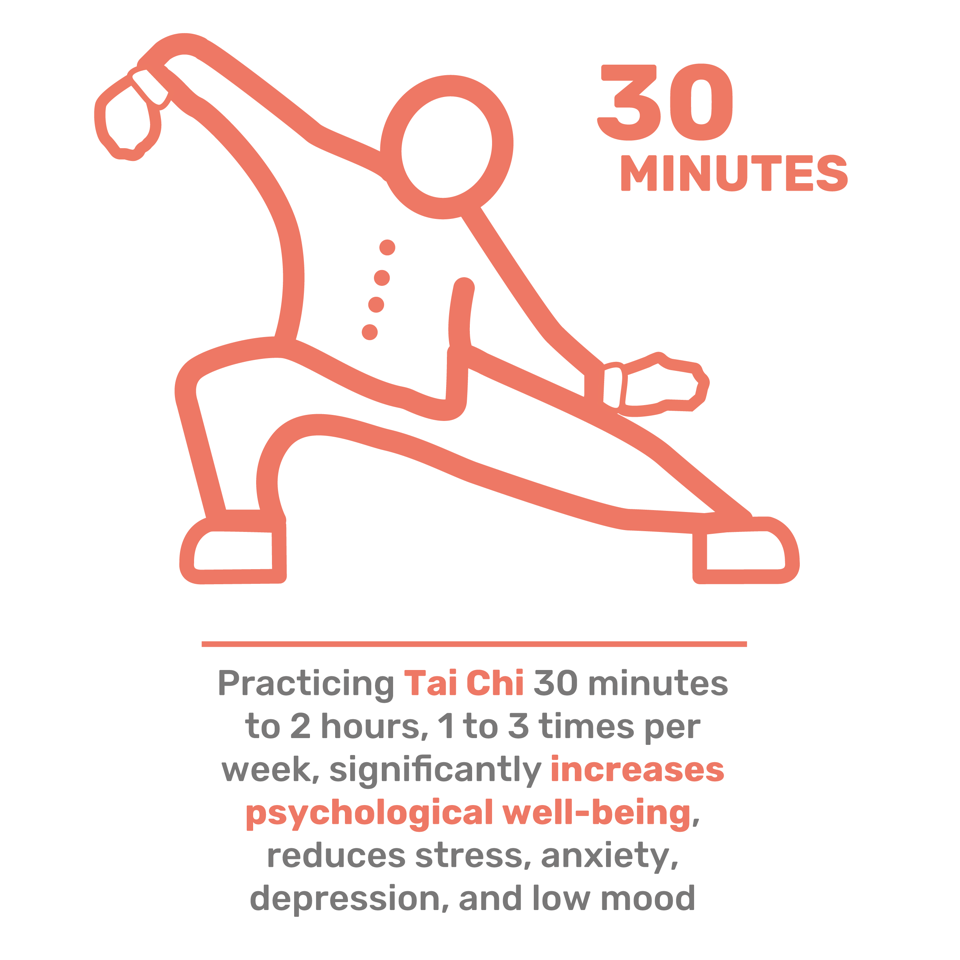Tai Chi
Originally developed as a martial art and method of self-development in 13th-century China, Tai Chi combines deep breathing, relaxation and mental focus with flowing movements. It aims to address the body and mind as an interconnected system, create harmony and improve mental and physical health.
Tai Chi exercises are suitable for a diversity of patients — regardless of gender, age, and health status, and can be practiced alone or with a group.
Tai Chi consists of ‘Four Pillars’ or types of practice, as well as a variety of physical exercises and meditative practices to develop key physical skills, focus the mind, increase self-understanding and develop internal energy:
- Qigong is the foundation of Tai Chi
- The student learns to move and feel their internal energy (Qi) and to use the will (Yi) to guide this energy
- The form is the main exercise used in Tai Chi
- It consists of a flowing sequence of movements that develops physical skill and health in a moving meditation
- Pushing Hands is when two people develop sensitivity and coordination together
- Application is the most advanced aspect, as the student explores the Form’s movements deeper and with a partner
- Application develops high levels of mind-body coordination, awareness, sensitivity, and confidence
Tai Chi and mental health

Tai Chi helps develop balanced health for the body and the mind by:
- Improving overall health
- Promoting calmness and focus of mind
- Increasing energy
- Improving posture, coordination, balance, strength, and agility
- Promoting relaxation and freedom from stress
By promoting relaxation and focus, as well as greater balance and energy flow to bodily systems, Tai Chi can be helpful when dealing with:
- Depression
- Anxiety
- Anger
- Fatigue
- Stress
- Sleep issues
- Addiction
- Poor concentration
- Poor memory
Abbott, R. and Lavretsky, H. (2014). Tai Chi and Qigong for the Treatment and Prevention of Mental Disorders. [online] Psychiatric Clinics of North America, 36 (1), pp. 109-19. Available at: https://www.ncbi.nlm.nih.gov/pmc/articles/PMC3917559/ [accessed 12 Sept. 2017].